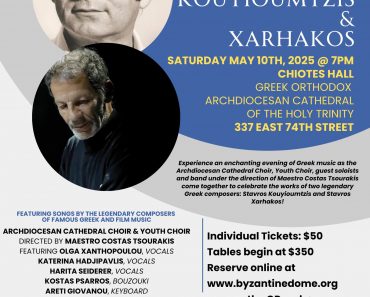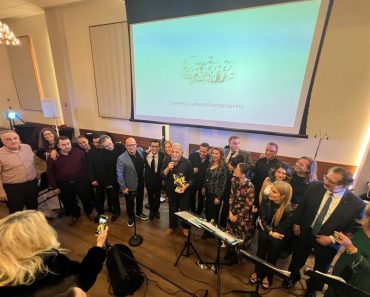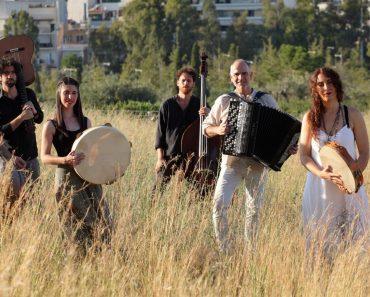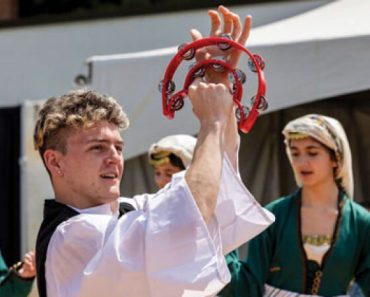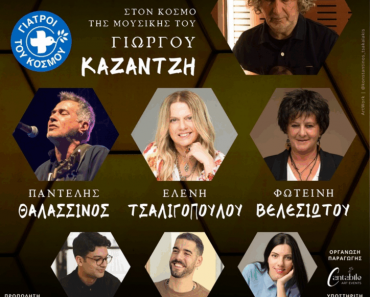When Los Angeles Times music critic Bill Kohlhaase described John Beasley in 1998 as a pianist whose style “reflects a variety of generational influences, incorporating the emphatic chordal clusters of Herbie Hancock, the rhythmic quirkiness of Monk, and the lush intelligence of Art Tatum into a highly refined personal voice,” he captured only part of what makes Beasley exceptional.
More than two decades later, Beasley remains a rare artist capable of bridging jazz’s past, present, and future with daring, sophistication, and soul. On May 15, he brings his expansive vision to Athens for the first time, performing at the Theater of the NO in what promises to be a landmark night of modern jazz.
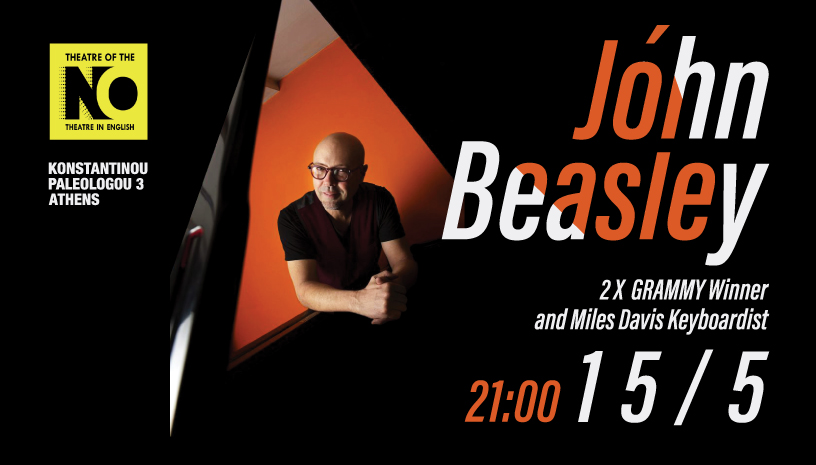
In an exclusive interview with To Vima International Edition, Beasley speaks about his upcoming collaboration with Greek musicians, his enduring creative drive, and the social power of music. He also shares thoughts on curiosity, honesty, and why jazz still matters.
First Time in Athens—with Greek Musicians
Beasley’s Athens performance marks his debut collaboration with local artists: bassist Manos Loutas and drummer Serras Bellos. He’s enthusiastic.
“This will be my first time working with Greek musicians, and I’m very much looking forward to it,” he says. “I’m excited to be inspired by them and to have a real musical conversation.”
He’s not entirely new to Greek audiences. In 2023, he appeared at the Sani Festival in Chalkidiki alongside fellow GRAMMY® winner Dianne Reeves. But this visit is different—he’s had time to explore the Greek capital , and he speaks warmly of live rebetiko performances and discovering the bouzouki.
“It’s very joyous, but it also has a kind of melancholy, soulful feel to it,” he says. “The melodies remind me of Portuguese fado, with that same connection to the sea and to human longing. I can only imagine what the stories are like.”
A Restless Creator
Beasley’s career spans genres and generations. He began in his 20s, touring with legends like Miles Davis and Freddie Hubbard. Since then, he has collaborated with artists as varied as Dianne Reeves, Herbie Hancock, Christian McBride, Chucho Valdés, and Queen Latifah.
A two-time GRAMMY® Award winner with 14 nominations, he’s also the visionary behind MONK’estra, a 15-piece big band that reimagines the music of Thelonious Monk with technical brilliance and fearless creativity.

What’s stayed constant through the decades?
“Just wanting to groove and swing and be rhythmic—and in my body,” he says with a smile.
But his perspective has matured.
“I’m not out to impress people with technique as much as I used to. I’m mellowing out a bit. I’m trying to tell a story now.”
To Beasley, jazz is an ever-evolving conversation: “To be a jazz musician is to be open-minded. We steal from everybody—classical, pop, R&B, hip-hop. Jazz is the original fusion music.”
His classical background, he says, gave him the discipline to explore freely: “When I get a new opportunity, I just jump in the pool. I guess I’ve learned how to fake everything pretty well,” he laughs.
Off stage, Beasley is a behind-the-scenes powerhouse. He’s worked on major film scores with composer Thomas Newman—Skyfall, Spectre, Finding Nemo, 1917—and contributed to series like Star Trek: The Next Generation and Fame.
Still, he’s driven by the same desire: to grow.
“I’m still practicing. Still searching. I want to communicate better. My mission now is not to play down to the audience but to lift them up. Jazz can be complex, so I have to trust the listener—and the listener has to trust me.”
Music with Meaning
With Eurovision approaching and politics ever close to culture, we asked Beasley about the role of artists today.
“Whether an artist takes a stance is a personal decision,” he says. “If they feel comfortable speaking out, that’s great. But not everyone is political.”
What concerns him more is what he calls the “fast food” culture of today’s pop mainstream.
“There’s not really a cultural uplifting in fast food music,” he says. “There aren’t even a lot of love songs anymore.”
He laments the lack of diversity in mainstream media, pointing to corporate consolidation: “All the radio and TV stations are owned by the same people. You end up hearing the same music everywhere—top 40, top 10. It’s capitalism music. It doesn’t inspire cultural change.”
By contrast, he recalls the music of the 1960s and ’70s—Coltrane, Miles, Dylan, Mitchell—as a force for real political impact.
“That music was about what was going on in everybody’s life and political life. And it changed things. The Vietnam War — it changed the Vietnam War. It changed a lot of things for good,” he says, adding, “It’s a shame that that’s not really happening anymore.”
And we couldn’t agree more.
Can music still do that?
“We just have to work harder,” he says with a half-smile. “And that’s okay—we’ll work harder.”
As the conversation ends, Beasley leaves us with a quiet, resonant promise:
“We’ll be okay. We’ll keep fighting.”
Concert Info
Where: Theater of the NO
When: May 15, 21:00
Tickets: Buy here
Line-up:
John Beasley – Piano
Serras Bellos – Drums
Manos Loutas – Bass


